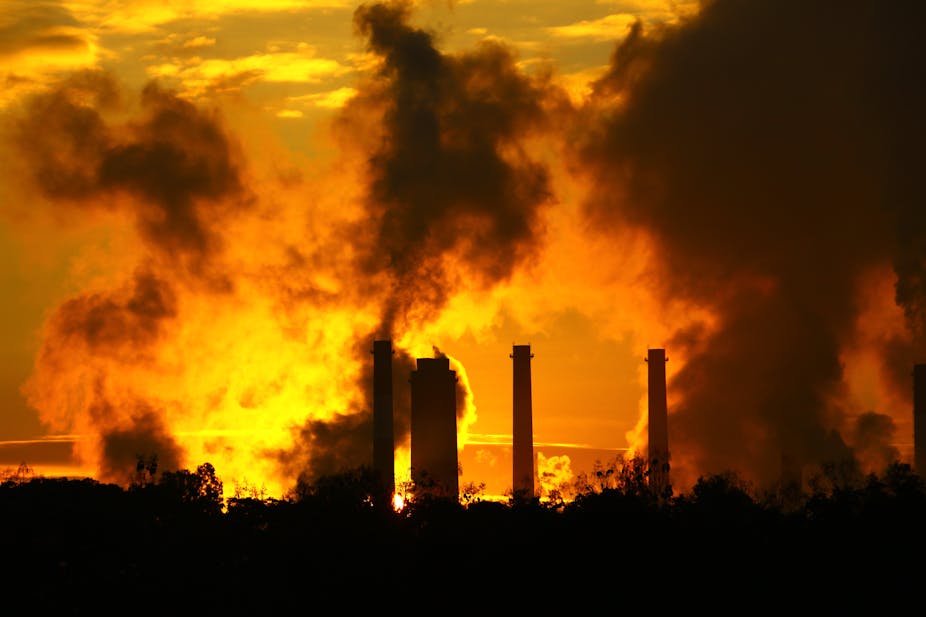The Intergovernmental Panel on Climate Change’s (IPCC) Fifth Assessment Report tells us that CO2 and other greenhouse gas emissions are continuing to rise and that, unchecked, climate change will likely have severe effects. This provides opportunity, as well as risk, for industry – but they need to act now to to reduce GHG emissions.
The recent summary report outlines the options for mitigating climate change. In a world where the global population is growing rapidly and quality of life depends on material goods, the task of mitigation is urgent. This will require action to reduce emissions across all sectors, including power generation, buildings, transport, agriculture and industry.
The industrial sector is a major contributor to climate change. According to the latest IPCC report, in 2010 approximately 31% of total emissions came from industrial sources. The International Energy Agency indicates that CO2 emissions from industry could increase by between 45-65% by 2050.
The problem with reducing emissions from the manufacturing sector is that there are very few common technologies and approaches. So where should we be focusing our attention? There are a number of items that should be at the top of our list.
The power of the supply chain
Businesses have the power to influence CO2 emissions up and down the supply chain in many ways. Distributors can pressure manufacturers to be less CO2-intensive, driving reductions in emissions from production. It also helps level the playing field for manufacturers as low-carbon becomes an additional criteria together with price and quality. Businesses can influence change in the transport sector through management of their vehicle fleets and shipping, as well as driving change in buildings through adoption of new and efficient practises. Businesses also have the power to increase demand for low carbon products, using advertising.
Businesses are waking up to this reality – at the recent Grantham Annual lecture, Paul Polman, CEO of Unilever, said, “Left unchecked, climate change has the potential to become a significant barrier to our growth strategy, and that of just about every other company.”
“It is only by tackling climate change in a systemic way that we can deliver growth for the global economy in the 21st century,” he said. But to tackle climate climate change we need more CEOs to take action.
Open up the conversation
Improving the efficiency of processes in manufacturing could greatly reduce carbon emissions across all business sectors. This could include process-specific changes such as upgrading to more efficient kilns in the cement sector as well as technologies which can be applied across a wide range of processes such as improvements to steam and motor systems. There is no doubt that these technologies should be adopted wherever possible.
But adoption of energy efficient technologies in practise is not straightforward. A range of economic and logistical factors can effect the decision to invest in energy efficiency improvements. Importantly, government needs business to talk openly and honestly about these challenges. In return, the UK government needs to make its support for retaining a manufacturing sector clear.
This is certainly an area where interest is gaining, as a recent review on Decarbonisation of heat in industry indicates – but more work needs to be done.
Carbon capture and storage
The application of carbon capture and storage, or CCS, to the industrial sector should be actively and urgently pursued, perhaps even as a precursor to CCS in the power sector. For many energy-intensive industries, the task of reducing their emissions by 80% is virtually impossible. But CCS is one of the few technologies which could achieve this goal as, in many cases, it is easier and cheaper than in the power sector.
If we delay action on CCS for too long, with the carbon price expected to rise, energy-intensive industries could face crippling costs with no way to reduce their emissions. Awareness of the key role of CCS in the industrial sector is growing, as indicated by projects such as the Teesside Low Carbon Programme.
Policy clarity
The need for clarity and certainty in climate policy cannot be stressed enough. Businesses will not make the necessary investments in efficient and low-carbon technologies on the back of tentative policies.
Businesses need the certainty that new policies will remain in place - independent of government changes and economic climate - long enough to see returns on their investment. The IPCC report has made it clear that the cost of delaying action will be greater than acting now. Politicians and businesses need to respond.

